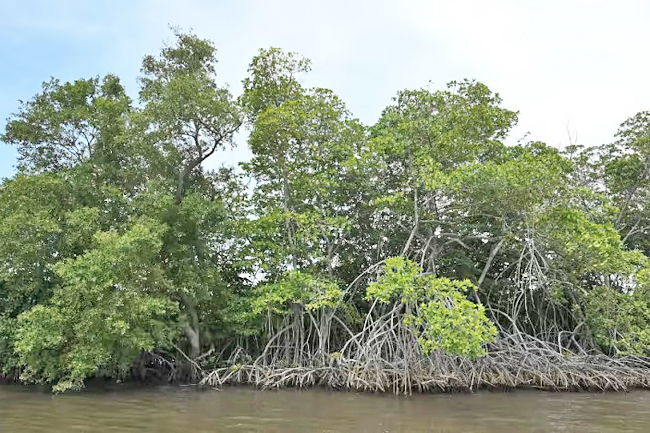DHAKA (AFP) – Conservationists in Bangladesh said tourists dropping rubbish in the world’s largest mangrove forest had seriously damaged the ecosystem, forcing the imposition of a single-use plastic ban in the World Heritage site.
The Sundarbans forest straddles the Bangladeshi coastline and is home to some of the world’s rarest creatures, including the Bengal tiger and the Irrawaddy dolphin. Some 200,000 tourists visit each year, according to government figures, on top of seasonal visits by fishermen and harvesters of wild honey who depend on the ecosystem’s bounties.
“When they visit the forest, they bring in disposable water bottles, one-time use plastic food plates, soft-drink bottles and cans,” government forest conservator Abu Naser Mohsin Hossain told AFP. “It is tough to clean up.”
Bangladesh Environment Minister Md Shahab Uddin announced a single-use plastic ban covering 6,500 square kilometres of the forest on Monday. “Single-use plastics have severely damaged the environment and biodiversity of the Sundarbans,” the minister said. His decision was immediately hailed by environmentalists.
“The environment and biodiversity are at stake in the Sundarbans,” Zoology Professor at Bangladesh’s Jahangirnagar University Monirul Khan told AFP.
“The gravity of pollution caused by plastics is more than meets the eye. Wild animals often end up eating these plastics.”



